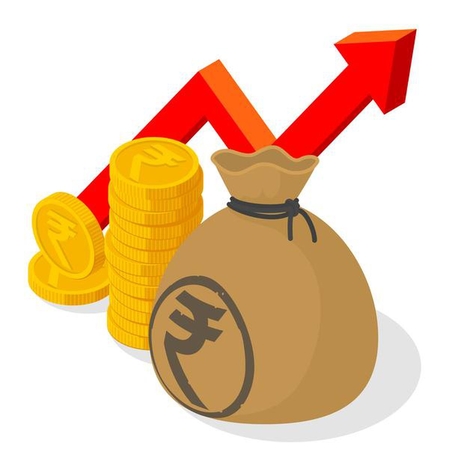The widely used Western economic model necessitates a careful examination of how it affects social pathology indicators and environmental parameters. Even though the majority of countries’ national wealth is increasing, economists and intellectuals must investigate why social pathology indicators such as happiness, peace, physical, mental, and social health, and environmental factors are declining over time, with health issues affecting almost all families and happiness and peace becoming a nightmare and wishful thinking. What are the possible causes, and how can they be effectively addressed in order to address the social indicators?
Life’s ultimate goal is to be happy and peaceful. Whatever we do, we do it to find joy and peace. However, the situation has deteriorated even in developed countries that claim to be wealthy in terms of GDP, GNP, Capacity to Pay, and Balance of Payments. The world is gradually realising the old Hindu concept of economy, which focuses on both material and social indicators. During ancient times, it was a tried and true model. What factors make this model work?
There are four factors that are primarily focused on. The first is that Dharma (Righteousness) does not imply religion. Dharma and religion should not be mixed; Hinduness or Sanatan is a Dharma, not a religion.
The second factor is “Arth”, which means earning money through righteous means for one’s own and one’s family’s survival. “Arth” plays an important role in the economic strengthening of society and nation. So the third factor which supports earning money is “Kam”, which means ethical work. Work is primarily done to earn a living, to improve society and the nation in various ways, including technological advancements, and the fourth factor for which everyone strives is “Moksh”, which means happiness. However, Only “Arth” and “Kam” are followed by the Western model out of these four factors. Materialistic aspects have been prioritised in the Western model, with disastrous consequences for individuals, social pathology indicators, and the environment.
The methods used to increase national wealth must be thoroughly studied in order to understand how it is improved by damaging social pathology indicators. The exponential increase in alcohol, tobacco, drug consumption, and chemically treated food are some of the examples that are assisting in the growth of national wealth. However, how it negatively impacts social pathology indicators and the environment must be addressed to redefine the economic model.
Every year, drug abuse causes immeasurable harm to public health and safety around the world, endangering the peaceful development and smooth functioning of many societies. Understanding the economic costs of drug abuse is required in order to develop policies that reduce these costs. Even though it benefits the economy by increasing national wealth, the consequences of drug abuse in five primary domains—health, public safety, crime, productivity, and governance—require serious attention.
The devastating effects of alcoholism, smoking, and other substance abuse on one's physical, mental, and social status, as well as mental disorders such as anxiety, depression, suicidal tendencies, and crime, are on the rise. Youth are the backbone of any nation, and their energy must be channelised effectively and efficiently for the growth of the family, society, and nation; however, substance abuse has a negative impact on their mindset.
Hence, we must distinguish between “Hindu Cosmology” and “Newtonian Cosmology”. The Hindu concept of “All is One” states that society is a body and individuals in society are organs of it, and thus everyone must work together with strong bonds to gain happiness and for the welfare of each other, society, and the environment. However, Western thought holds that “I am the centre of the universe” and that I must seek only my own happiness, even if it means exploiting others. Other is similar to a market commodity. This ideology or thought process has actually harmed social indicators and the environment, and the price that everyone is paying is not only monetary but society’s consciousness has been weakened.
Shrour, a Japanese economist, proposed a new economic model called “New National Welfare or New Economic Welfare,” which clearly suggests deducting the cost of social and environmental indicators from national wealth to arrive at a realistic net national wealth. The Hindu economic system believes in “समुत्कर्षनिःश्रेयसस्यैकमुग्रं” both materialistic and spiritual upliftment, the need of a time. It’s time to look deeper into the superficial and destructive aspects of the Western economic model; I’ll write more about this in the following chapters to gain more clarity.




















Comments